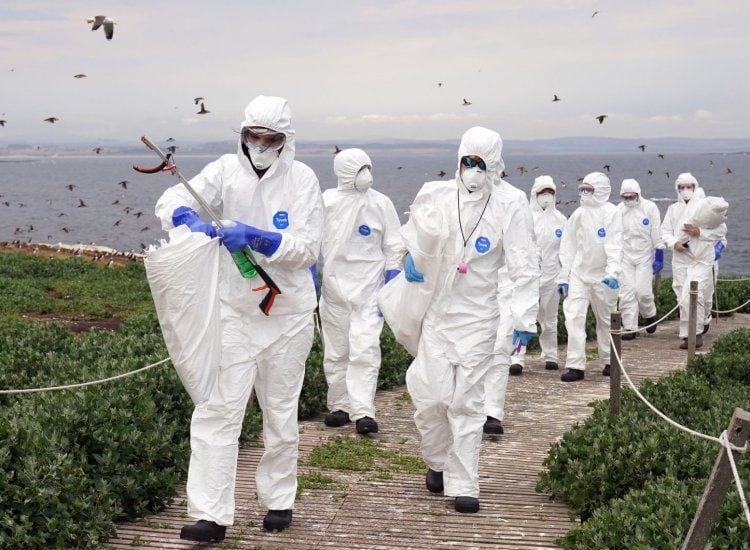Cattle and goats were added to the growing list of species affected by the A(H5N1) bird flu variant last month, and great concern reigns over the situation after humans have now also become part of the list.
The World Health Organization (WHO) said on Thursday that the growing spread is of “enormous concern”, especially because of the “extraordinarily high death rate” associated with it.
The current bird flu outbreak began in 2020 and has already resulted in the death of millions of poultry, wild birds, as well as land and sea mammals.
According to Jeremy Farrar, chief scientist at the WHO, “the A(H5N1) bird flu variant has become a global zoonotic pandemic”.
“The major concern is that the virus – due to the increasing contamination of ducks and chickens as well as mammals – has now developed the ability to infect humans and may also develop the ability to be spread among humans.”
There has so far been no evidence that the bird flu virus is spreading among humans. In the hundreds of cases where people contracted the virus due to contact with infected animals, “the death rate is, however, exceptionally high”, says Farrar.
From the beginning of last year to April this year, a total of 463 deaths from 889 human cases were recorded in 23 countries. This brings the death rate to 52%.
Earlier this month, US authorities said in a worrying twist that someone in Texas is recovering from bird flu after being exposed to infected cattle.
It was only the second case of someone in the US testing positive for bird flu. The incident comes after the virus sickened flocks believed to have been exposed to wild birds in Texas, Kansas and other states.
It also looks like the first human infection – with the A(H5N1) variant – which was caused by contact with an infected mammal, says the WHO.
“When mammals contract this virus, it becomes even more dangerous for humans.”
Farrar warns that “bird flu is increasingly looking for new hosts” and says “this is a real concern”.
He called for increased monitoring and stressed that it is extremely important to understand how many human infections are occurring worldwide because “this is where the adaptation of the virus is going to take place”.
“It’s tragic to say, but if I get infected with H5N1 and I die, then that’s the end of it. If I move through the community and I spread it to someone else, the cycle begins.”
He says efforts to develop vaccine and medicine against H5N1 are underway. Farrar also emphasizes the need to ensure that regional and national health authorities worldwide have the ability to diagnose the virus.
“This is necessary so that the world is in a position to react immediately when the H5N1 bird flu variant starts to be spread from person to person,” says Farrar.








